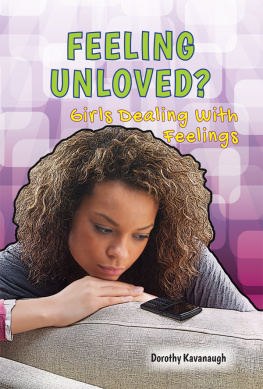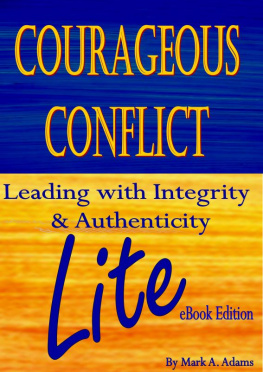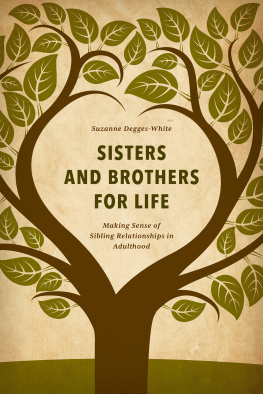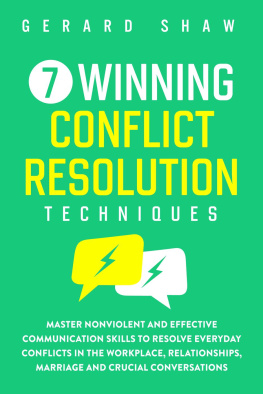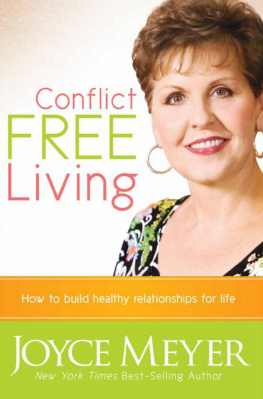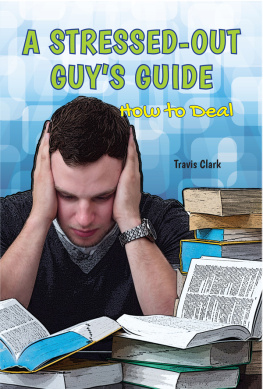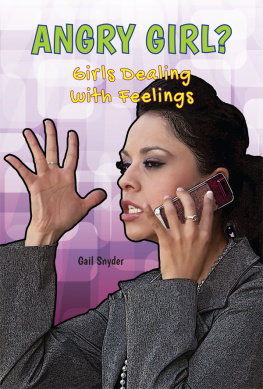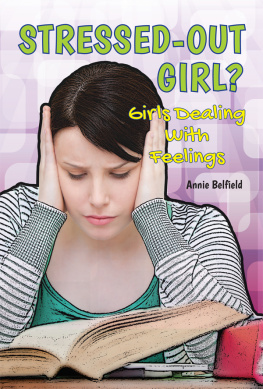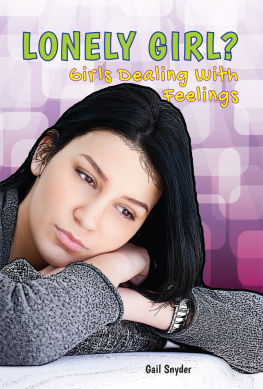Are You Being Hassled?
Mismanaged conflict can lead to damaged relationships, mistrust, and hostility. You can't change how you feel when someone says or does something you disagree with, but you can control how you react. Hassled Girl? Girls Dealing With Feelings discusses the causes and effects of conflict and will help you take the first steps to improve how you deal with it so you can begin to mend your relationships.

Disagreement. Strife. Friction. Quarrel. Dispute. All of these words are synonyms for conflict. Although the word conflict can be used to describe a wide range of situations, it usually boils down to not seeing or understanding someone elses point of view.
Conflict is part of everyones life. You can feel conflict inside yourself, for example, whenever you have to choose between something you want to do and something you have to do. And there are times when you have conflict with otherssuch as when a friend accuses you of lying or your parents criticize your report card. Conflicts also occur because of disagreements and differences between groupsin ideas, opinions, values, beliefs, lifestyles, and personalities.
Conflict can cause a range of powerful emotions. When two girls harassed fifteen-year-old Leslie during a school bus ride home, she felt humiliated.
I could hear two of the older girls whispering and laughing at me, she explained in The Psychology of Emotions (1991) by Carroll E. Izard. I could feel my face get red and I tried to read my book and ignore them. The next thing I knew they were throwing spitballs and everyone was laughing.
But Leslie felt many other emotions as well: I was angry with the girls, and with everyone else, for laughing and being so mean when I didnt deserve it. I think that I was also angry with myself for not having the courage to stand up to them. But I was very afraid of them also, they were bigger and older.... I was also actually surprised at the depth of their cruelty.
When you have a conflict with another person, it is normal to feel angry, frustrated, disappointed, or sad. However, sometimes people in a conflict allow their emotions to control their actions, and they react in destructive ways. They might yell and swear at the other person. Some will lash out or get into fights. This kind of behavior makes it hard to work things out.
You may think conflict is bad. After all, fights and disagreements are often uncomfortable and unpleasant. But conflict is neither negative nor positive. It is simply the meeting of two or more different needs, feelings, or expectations. The way that a conflict is managed is what determines whether it is good or bad.
In Leslies case, she handled her conflict through avoidance. That is, she decided to avoid her tormentors by no longer riding the bus. Sometimes avoidance may be the only appropriate solution, especially when dealing directly with harassment is not safe. Avoidance kept Leslie out of harms way, but it did not address the conflict. If she had shared her problem with someone else, such as the bus driver, it is possible she could have resolved the problem in a better way.
Not directly addressing this conflict affected Leslie in the years that followed. The bus ride incident has always stuck with me, she admits. Those girls made me feel terrible about myself, and shook up my self-confidence quite a bit.... I felt like a real failure.
Conflict can overwhelm some teens to the point that they engage in dangerous or harmful behaviors to release their emotions. Such behaviors include violence, drug or alcohol abuse, self-mutilation (cutting), and even thoughts of suicide.
This book gives you positive ways to deal with conflicts you will experience in life, both as a young person and as an adult. Its tips and strategies can help you learn positive ways to control your emotions, avoid fights, and resolve conflicts.

- In society: among people with different values, religions, and ethnic groups
- In your personal relationships: with family, friends, and teachers
- Within yourself: when you have to make a hard decision or you learn something different from your previous beliefs

A part of everyones personality, emotions are a powerful driving force in life. They are hard to define and understand. But what is known is that emotionswhich include anger, fear, love, joy, jealousy, and hateare a normal part of the human system. They are responses to situations and events that trigger bodily changes, motivating you to take some kind of action.
Some studies show that the brain relies more on emotions than on intellect in learning and in making decisions. Being able to identify and understand the emotions in yourself and in others can help you in your relationships with family, friends, and others throughout your life.
Conflict becomes a bigger part of life during your teen years. Thats when you are developing the values, opinions, and personality that will determine what you will be like as an adult.
Right now, you are beginning to examine and weigh the values that your parents and community have taught you. And you are deciding which of these beliefs and opinions to keep and which to reject. This weighing process is totally normal. It, along with your natural drive toward independence, helps you develop self-identity. However, your search for values, testing of opinions, and testing of boundaries can also contribute to a lot of conflictboth within you and within your family.
There are also biological reasons why emotions are powerful during the teen years. One reason is that the brain is undergoing great change. For a long time, scientists have known that the brains basic structure is shaped during the first few years of an infants life. What researchers have recently learned is that a second period of significant change begins around the time a person hits pubertya time when the rest of the body is also going through many changes.
During puberty the amygdalaa part of the lower brain that regulates emotionsbecomes more dominant. This change means that a teen can have strong swings in emotion, which can affect her judgments and decision-making. As the teenage girl gets older, the frontal lobes of her brain develop further. In an adult, this area, which controls reasoning and judgment, takes over much of the amygdalas role.
A second reason for higher levels of conflict among teenagers is also a result of puberty. During this time, the body produces many hormones. These are chemicals that transmit messages and regulate cell activity throughout the body. Hormones are necessary for the body to grow properly; they also affect development of the physical attributes needed for sexual reproduction. Both girls and boys have a rush of new hormones during pubertyamong girls, the primary hormones include estrogen and progesterone. The changing hormone levels affect the way that girls can feel and can make them feel anxious, moody, or even depressed.
Everyone has feelings of sadness from time to time. However, when depression persists and is accompanied by feelings of hopelessness, fatigue, and a loss of interest in life, it may be clinical depression. This is a serious mental illness that requires medical treatment.


